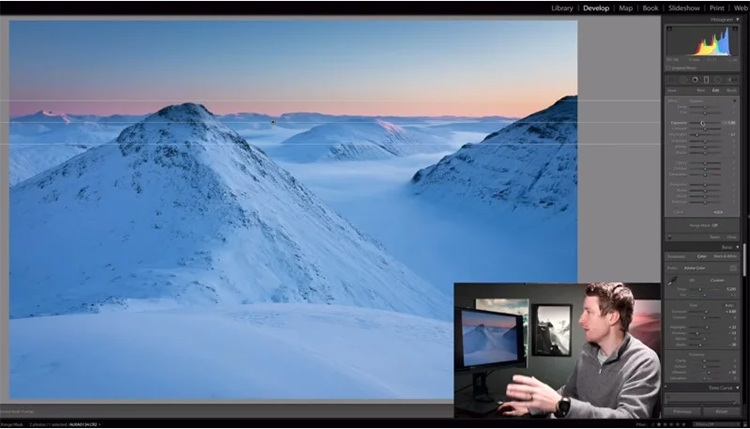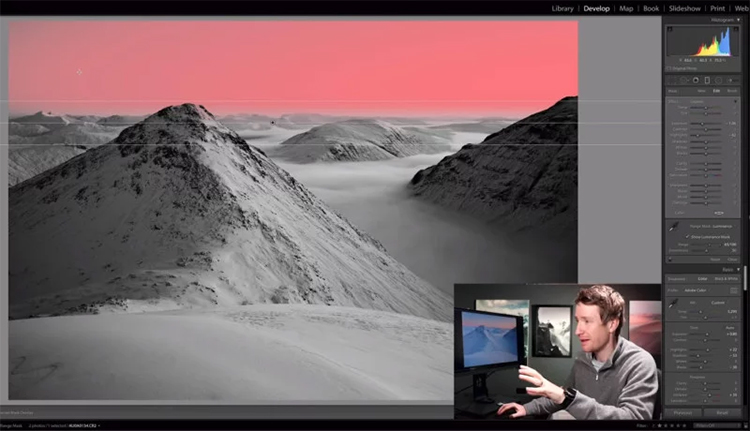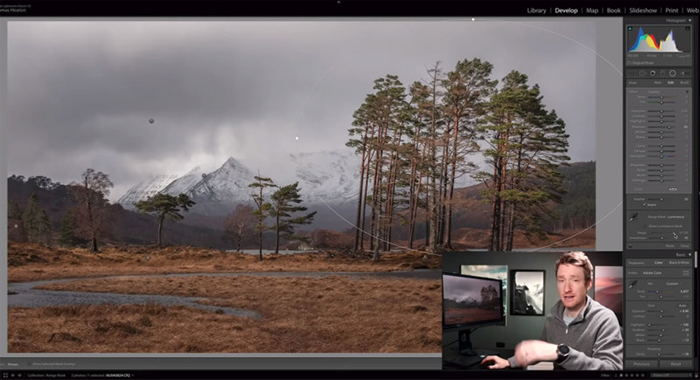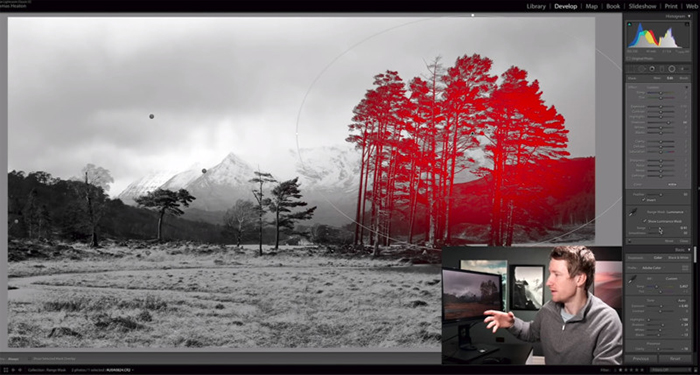
Lightroom has a powerful tool called Range Mask that can transform the way you post-process your photos, but photographers are often unaware that the tool even exists. Landscape photographer Thomas Heaton decided to make this 12-minute video to show how the tool can be invaluable for improving your photos.
Range Masking was introduced in October 2017 and it allows you to limit local adjustment tools to a certain range of colors or tones. It’s non-destructive and re-editable.
For his first example, Heaton uses the Graduated Filter tool to reduce the Exposure and Highlights of the sky above snowy mountains. But the problem is that it applies in equal amounts to the darker side of the sky as it does to the brighter side, and it darkens the mountaintops as well.

The solution is to use a Luminance Range Mask to only apply the edit to the brighter areas of the sky. This reduces the amount applied to the darker areas of the sky and instantly ignores the mountaintops at the same time.

For his second example, Heaton shows a photo in which he wanted to use a Radial Filter to boost the shadows of the dark cluster of trees. But this would by default introduce a glowing halo area in the frame that’s centered on the trees since it would equally affect the sky in the background.

So to avoid this issue, Heaton uses a Luminance Range Mask to target only the darker trees and hills while ignoring the brighter sky.

“If you didn’t know about this and you haven’t used this in Lightroom, give it a go,” Heaton says. “It transforms the look of the processing of your image, so you get a much more natural finish on your image.”
